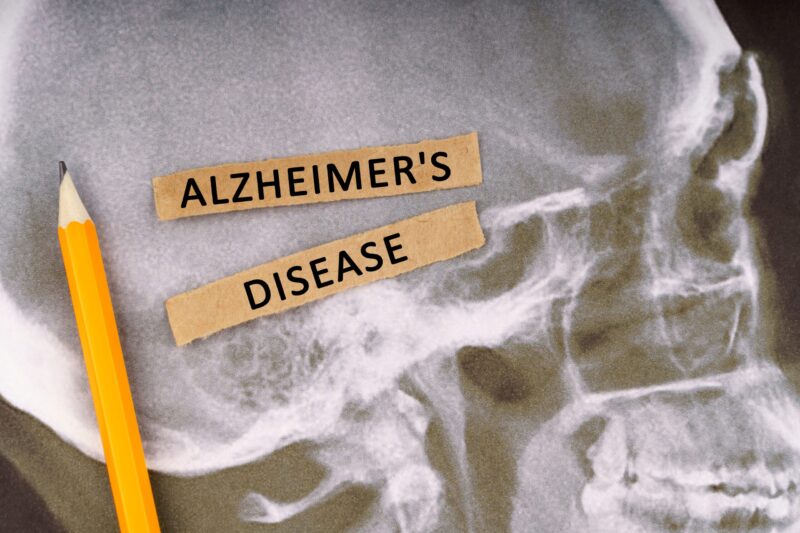At 76 years old, Doug Whitney lives near Seattle and appears mentally sharp. Yet his story is far from ordinary — despite carrying a gene nearly certain to cause early-onset Alzheimer’s disease, he has shown no signs of cognitive decline. His situation baffled scientists at Washington University School of Medicine (WashU), who believe his resilience might hold clues to preventing Alzheimer’s.
The Genetic Odds Were Against Him
Whitney inherited a rare mutation in the PSEN2 gene — a genetic change known to virtually guarantee early-onset Alzheimer’s, often starting in the 50s or even younger. In his family, many carriers developed the disease and died before age 60 or in their early 50s. Whitney’s brother, for example, died at 55 after developing Alzheimer’s. Yet Whitney has reached his mid-70s with no symptoms. In fact, when he volunteered for a study of his family’s inherited Alzheimer’s risk, he believed he didn’t carry the mutation — only to learn he did.
What Researchers Found — And What They Still Don’t Know
Intrigued by Whitney’s resilience, the WashU team published findings in the journal Nature Medicine. They conducted genetic analyses and brain imaging — and made two standout discoveries:
- Whitney’s brain showed high levels of amyloid protein, which usually accumulates early in Alzheimer’s disease.
- Yet, in contrast, his brain showed virtually no buildup of tau protein, which is strongly linked to the onset of cognitive decline.
According to senior author Randall J. Bateman, this combination — amyloid present but tau absent — points to what the team calls “remarkable resistance to tau pathology and neurodegeneration.” Moreover, they detected unusually high levels of “heat-shock” proteins in Whitney’s cerebrospinal fluid. These proteins help cells deal with stress — and in his case, might have helped block tau accumulation. Whitney, who served in the Navy, told Fox News Digital he often worked in engine rooms where temperatures climbed above 100 °F — a factor scientists think may have triggered those protective proteins in his brain.
But the mechanism is still unknown. Scientists don’t yet know for sure whether the heat-shock proteins are what prevented tau buildup, or whether some other genetic or environmental factor is at work. (MORE NEWS: Everyday Medications May Reshape Your Gut for Years)
Why This Case Matters
Whitney’s case offers a unique window into Alzheimer’s resistance. Rather than simply studying those who develop the disease, scientists are increasingly focusing on those who don’t develop it despite high risk. If the protective factors can be understood, they may inform therapies that delay or prevent Alzheimer’s in others.
As co-first author Jorge Llibre-Guerra put it: “If we are able to uncover the mechanism behind this resilience, we could try to replicate it with a targeted therapy designed to … benefit others.” In other words, Whitney may serve less as a patient and more as a model of what could be possible for many.
What the Man Himself Thinks
Whitney says he feels healthy and active. He and his wife often do crossword puzzles and sudoku to keep their minds sharp, and he hardly takes any medications. He told Fox News Digital: “I was 61 at the time — well past the age where it should have onset … I was amazed.”
Despite being a participant in rigorous testing for over 14 years, he says he’s committed to staying in the study. “As long as they need me, I’ll be here,” he said. “It’s become my calling.” He also offers a message to others at risk: Don’t give up. Seek research opportunities early. You’re not alone. (MORE NEWS: Emotional Well-Being and Aging: How Older Adults Can Thrive)
The Road Ahead: What Scientists Will Do Next
Building on Whitney’s case, the research team has made his genetic data and tissue samples available for further study. They are now planning broader investigations in people and animal models to identify the exact protective mechanism.
Scientists hope to answer questions such as: What combination of factors prevented tau buildup? Is the high heat-stress exposure vital? Are there other unknown gene variants at play? Could a gene therapy or drug mimic Whitney’s protective profile? Each question offers hope for future treatments that could change the disease’s course.
What It Means for Us
While the story is extraordinary, we should interpret it with caution. One person’s resilience doesn’t guarantee a cure. However, his case underscores two important points:
- Genes are not always destiny. Even with a ‘certain’ mutation like PSEN2, outcomes can differ. Whitney’s example challenges deterministic views of genetics.
- Studying the resistant may unlock breakthroughs. Often research focuses on those who get sick; in contrast, studying who doesn’t may reveal protective mechanisms we can harness.
For individuals concerned about Alzheimer’s, the take-home is: maintain brain health, stay open to participation in research, and follow medical advice. Meanwhile, developments like this remind us that resilience is possible — and science is advancing.
The Takeaway
Doug Whitney’s story is more than remarkable — it’s reshaping how scientists think about Alzheimer’s. Despite carrying a mutation that usually triggers early Alzheimer’s, he remains symptom-free at 76. As a result, researchers are keenly studying his brain, genetics, and life history to understand how and why. The ultimate goal: turn resilience into a treatment pathway for everyone at risk. With further research, what seems exceptional today may pave the way for a stronger tomorrow.
Forget the narrative. Reject the script. Share what matters.
At The Modern Memo, we call it like it is — no filter, no apology, no corporate leash.
If you’re tired of being lied to, manipulated, or ignored, amplify the truth.
One share at a time, we dismantle the media machine — with facts, boldness, and zero fear. Stand with us. Speak louder. Because silence helps them win.



